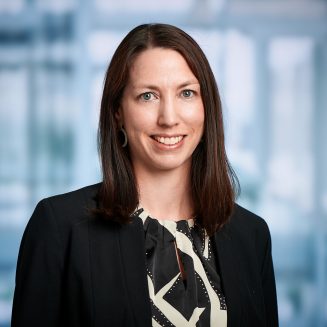
When is it worth having a check-up, and when not?
Detecting illnesses at an early stage can save lives. But which medical checkups are best? And which check-ups run the risk of showing up illnesses that you don’t have? We’ll explain.
Preventive medical examinations, known in the medical field as check-ups or screenings, are designed to detect potential illnesses before any symptoms or ailments occur – in other words, while a person appears healthy. In most cases, the earlier a disease is detected, the higher the chances are of treating it.
But which check-ups should you consider having, and when? “It makes sense to have a preliminary examination, or check-up, when the pros outweigh the cons,” says Dr Sabrina Stollberg. She is a specialist in general surgery recognised by the Swiss Medical Association (FMH) and a research associate in Helsana’s Public Health Sciences team.
Overview of topics
When is it worth having a check-up?
When to have a check-up, and which type, depends on a number of factors: gender, age, illnesses in the family, weight and many others. “Where indicators show a higher risk of a patient getting a certain disease, the greater the benefit of a check-up,” explains Sabrina Stollberg.
An example: if a patient’s mother had breast cancer at a young age, the risk of her daughter also developing breast cancer is increased. Along with genetic risk factors, other risk indicators for breast cancer are obesity, smoking or hormone replacement therapy during the menopause.
It is very important to consult a doctor for clarification so you can assess the risk and to decide for or against having a check-up – in this case, a mammogram. “Tests can create anxiety or lead to further examinations,” says Sabrina Stollberg. “Before a check-up is conducted, patients should be fully informed about the benefits and disadvantages.”
In a general check-up with your GP, it is also important to discuss lifestyle-based risk factors, such as the use of alcohol or drugs, an unbalanced diet, a lack of exercise or insufficient social contact.
Advantages of early detection
- An effective screening programme can considerably improve the health of the population (cf. WHO, 2020).
- Diseases can be detected at a stage where they are not yet causing any symptoms (cf. IQWiG, 2022).
- Screening can detect risk factors or preliminary stages of a disease (cf. IQWiG, 2022).
- Early detection of diseases enables less toxic therapies or interventions to be used, e.g. reduced use of chemotherapies for treating breast cancer (cf. WHO, 2020).
Which risks are involved in having check-ups?
Preliminary examinations can involve risks. For example, there may be bleeding during or after a colonoscopy. Another risk is the danger of a “false alarm”. This is an incorrect positive test result, which can lead to needless, sometimes risky follow-up examinations such as biopsies. In addition, a “false alarm” often creates anxiety and worry for patients.
It is important to inform patients in advance about the consequences of test results. Even a negative test result (i.e. no disease) is not 100 per cent reliable. This risks making someone think they are safe, meaning that they then pay too little or no attention to symptoms that occur later. Also, it is important to discuss in advance which further measures the person wants to undertake at all if a positive result occurs. It doesn’t make much sense for a patient to have a mammogram, for instance, if they wouldn’t want to then have a biopsy or an operation if cancer is suspected.
Disadvantages of early detection
- Overdiagnosis: when screening results are abnormal, many people undergo treatment although no disease is developing, the preliminary stage of a disease has not progressed or it has even regressed (cf. IQWiG, 2022).
- Screening involves risks and occasionally produces incorrect results (cf. WHO, 2020):
– a false positive test result can cause long-lasting anxiety and frustration for the patient (cf. WHO, 2020).
– A false negative result leads to the patient ignoring symptoms and consequently obtaining their diagnosis too late. Claims for compensation are sometimes made due to late diagnoses (cf. WHO, 2020).
Prevention – how does Helsana contribute to the costs?
The benefits related to prevention are many and varied. For example, COMPLETA and SANA help to pay for preventive measures such as vaccinations, ultrasound examinations, smoking cessation and examinations for the early detection of cancer and cardiovascular disease, as follows:
COMPLETA
COMPLETA supplementary insurance covers 90% of the costs for certain preventive examinations, up to a maximum of CHF 750 per calendar year.
SANA
SANA supplementary insurance covers 75% of the costs for certain preventive examinations, up to a maximum of CHF 500 per calendar year.
PRIMEO
You will receive up to CHF 1700 every three calendar years for various check-up programmes, such as those related to exercise, nutrition or stress reduction.
What factors should you consider when you get older?
The risk linked to many cancer types increases with age: a colonoscopy is recommended from the age of 50, for example. At the same time, professional associations stipulate an upper age limit of 75 years for this check-up, as the risk of complications can increase and the benefit with regard to life expectancy is lower. As with all other medical checkups, the individual pluses and downsides should be discussed with a professional.
Would you like to know whether a medical checkup or screening is appropriate for you?
If so, contact your GP for advice.
Do you have any general questions about medical checkups/screenings?
Our health consultation advisors are available to give you helpful information and assistance on this subject.
Health consultation 058 340 15 69
Monday to Friday, 8.00 a.m. to 6.00 p.m. (local rate).
Helsana health consultations are a free service for everyone with Helsana supplementary insurance. By calling our health consultation service, you confirm that you accept the terms of use and the privacy policy.
Benefit by taking preventive measures
Helsana+ rewards a healthy lifestyle and you taking care of yourself. Collect valuable Plus points via the bonus programme. You will benefit from cash payments of more than CHF 300 each year and other attractive discounts.

Sabrina Stollberg is a specialist in general surgery recognised by the Swiss Medical Association (FMH) and a research associate in Helsana’s Public Health Sciences team. She provided the editorial team with advice and input for this article.

Newsletter
Find out more about current health issues every month and get all the information you need about our attractive offers from all Helsana Group companies * delivered by e-mail to read whenever it suits you. Our newsletter is free of charge and you can sign up here:
We did not receive your information. Please try again later.
* The Helsana Group comprises Helsana Insurance Company Ltd, Helsana Supplementary Insurances Ltd and Helsana Accidents Ltd.
